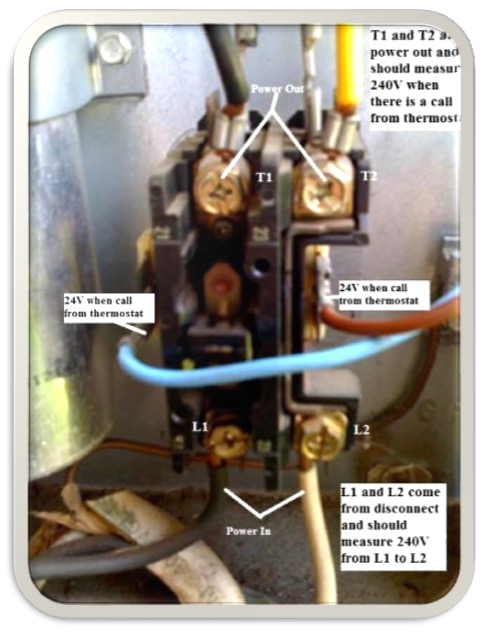Contactor HVAC | What is an Air Conditioner Contactor?

Contactor HVAC
An HVAC contactor is a critical electrical component in an air conditioning unit that serves as the bridge controlling the flow of electricity. Think of it like a drawbridge: when the bridge is down, electricity flows freely; when it’s raised, the current is blocked. This electrical switch operates based on signals from the thermostat, which communicates when the system needs to start or stop cooling.
The contactor works in conjunction with other key components, such as the compressor, condenser, and fan motor, to manage the cooling cycle efficiently. Inside the contactor, electrical currents move through auxiliary contacts to connect or disconnect the power supply, enabling or disabling the operation of your air conditioning unit. Without a functioning AC contactor, your AC system cannot regulate its operations effectively, leading to inefficiencies or complete shutdowns.
How Does an HVAC Contactor Work?
The operation of an HVAC contactor revolves around controlling the electricity flow to the system’s major components, such as the compressor and condenser fan motor, during the cooling cycle. Here’s a step-by-step look at its process:
1. Thermostat Activation: When the thermostat detects that the room temperature has risen above the set level, it sends an electrical signal to the contactor.
2. Electromagnetic Action: This signal energizes an electromagnet within the contactor, pulling the contacts together to complete the circuit.
3. Electricity Flow: With the circuit closed, electricity flows to key components of the air conditioning unit, such as the compressor and condenser fan motor. This activates the system operation, starting the cooling process.
4. Heat Expulsion: The AC system pulls in warm air, cools it with refrigerant gas, and expels heat outside via the condenser. The process continues until the room temperature matches the thermostat’s setting.
5. System Shutoff: Once the desired temperature is achieved, the thermostat signals the contactor to open the circuit. This stops the electricity flow, shutting down the system until cooling is needed again.
The HVAC contactor is essential for maintaining an efficient and safe cooling cycle, ensuring that your air conditioner operates smoothly and responds appropriately to temperature changes.
Signs of a Failing HVAC Contactor
Recognizing the symptoms of a malfunctioning contactor HVAC can save you from unexpected system failures and high repair costs. Here are some key indicators to watch for:
- Unusual Noises:
Buzzing noise: A loud buzz during the cooling cycles might indicate that the contactor is struggling to engage due to electrical arcs or a damaged coil.
Chattering: Repeated clicking or chattering sounds suggest loose contacts or inconsistent electrical connection, which can disrupt system performance.
- Physical Damage:
Pitting: Over time, the contacts within the contactor may develop pitting—small dents or burns caused by repeated arcing. This reduces their ability to conduct electricity efficiently.
– Burning Smell: A noticeable burning odor could indicate overheated components due to poor continuity or excess current.
- Electrical Issues:
Arcing: Visible sparks or electrical arcs inside the unit can signal a failing contactor.
Energy Consumption: A malfunctioning contactor can lead to irregular power use, resulting in increased energy consumption and higher utility bills.
Multimeter Testing: If you suspect an issue, a multimeter can measure continuity and verify whether the contactor is functioning properly.
- System Performance Problems:
AC Unit Won’t Start: If the air conditioning unit fails to power on, the contactor may be stuck open, preventing the circuit from closing.
AC Unit Won’t Turn Off: Conversely, if the system won’t shut down after reaching the set temperature, the contactor could be stuck closed, continually allowing electricity flow.
A failing contactor not only impacts the functionality of your AC system but can also pose safety risks. If you notice any of these symptoms, it’s essential to address them promptly to avoid further damage.
Why Routine Maintenance Matters
To ensure the long-lasting performance of your air conditioning unit, routine maintenance is key. At TSC Air, we specialize in inspecting, cleaning, and servicing AC systems, including replacing worn-out HVAC contactors. Our maintenance plans are designed to keep your system running efficiently, prevent unexpected breakdowns, and optimize energy usage.
Whether you need a new contactor or a full system checkup, our team is here to help. Contact us today to schedule a maintenance appointment and keep your air conditioner in top shape!

